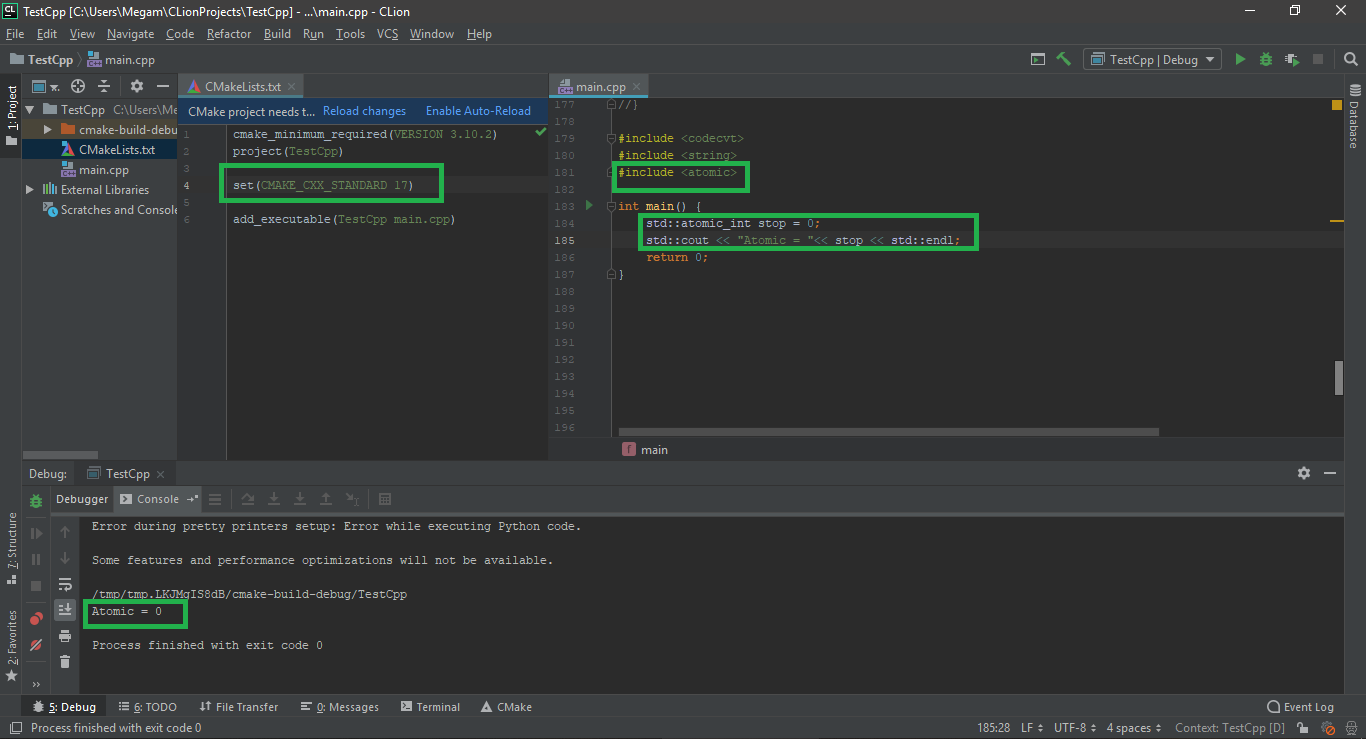Your code is attempting to construct a temporary std::atomic_int on the RHS, then use the std::atomic_int copy constructor (which is deleted) to initialise stop, like so:
std::atomic_int stop = std::atomic_int(0);
That's because copy-initialisation, as you are performing here, is not quite equivalent to other kinds of initialisation.
[C++11: 8.5/16]: The semantics of initializers are as follows [..]
If the initializer is a (non-parenthesized) braced-init-list, the object or reference is list-initialized (8.5.4).
(this allows for option 3, at the end of this answer)
[..]
If the destination type is a (possibly cv-qualified) class type:
- If the initialization is direct-initialization, or if it is copy-initialization where the cv-unqualified version of the source type is the same class as, or a derived class of, the class of the destination, constructors are considered. The applicable constructors are enumerated (13.3.1.3), and the best one is chosen through overload resolution (13.3). The constructor so selected is called to initialize the object, with the initializer expression or expression-list as its argument(s). If no constructor applies, or the overload resolution is ambiguous, the initialization is ill-formed.
(this almost describes your code but not quite; the key here is that, perhaps contrary to intuition, std::atomic_int's constructors are not considered at all in your case!)
- Otherwise (i.e., for the remaining copy-initialization cases), user-defined conversion sequences that can convert from the source type to the destination type or (when a conversion function is used) to a derived class thereof are enumerated as described in 13.3.1.4, and the best one is chosen through overload resolution (13.3). If the conversion cannot be done or is ambiguous, the initialization is ill-formed. The function selected is called with the initializer expression as its argument; if the function is a constructor, the call initializes a temporary of the cv-unqualified version of the destination type. The temporary is a prvalue. The result of the call (which is the temporary for the constructor case) is then used to direct-initialize, according to the rules above, the object that is the destination of the copy-initialization. In certain cases, an implementation is permitted to eliminate the copying inherent in this direct-initialization by constructing the intermediate result directly into the object being initialized; see 12.2, 12.8.
(this is your scenario; so, although the copy can be elided, it still must be possible)
Here's the fix, anyway; use direct-initialisation or list-initialisation:
std::atomic_int stop(0); // option 1
std::atomic_int stop{0}; // option 2
std::atomic_int stop = {0}; // option 3



std::atomic_int stop = std::atomic_int(0);, and that will not work as the copy-constructor is deleted. Instead try to do direct initialization, likestd::atomic_int stop{0};. – Farinaceous